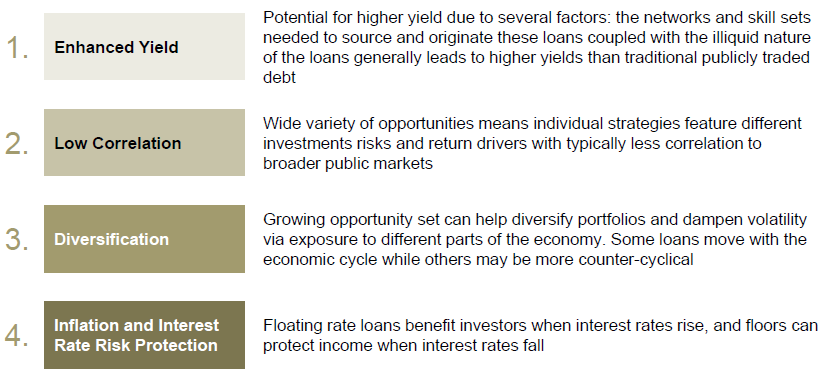Why Middle Managers Are Crucial For Company And Employee Success

Table of Contents
Bridging the Gap Between Leadership and Employees
Middle managers act as the critical bridge between high-level strategic planning and the day-to-day operations of teams. They translate complex, often abstract, leadership directives into actionable tasks and goals that frontline employees can understand and achieve. This crucial translation process ensures that company vision isn't lost in the shuffle, fostering a sense of purpose and direction throughout the organization. Effective middle managers excel at:
- Effective communication and feedback channels: They create open lines of communication, ensuring information flows freely between leadership and employees. This includes actively soliciting feedback and addressing concerns promptly.
- Clear task delegation and accountability: They clearly define roles, responsibilities, and expectations, ensuring that tasks are appropriately delegated and individuals are held accountable for their contributions.
- Mentorship and guidance for junior employees: They act as mentors and guides, providing support and guidance to help junior employees develop their skills and advance their careers.
- Translating complex information into understandable directives: They simplify complex information and strategic initiatives, making them easily digestible and actionable for their teams.
Fostering Employee Engagement and Productivity
The impact of middle managers on employee morale and motivation cannot be overstated. Effective middle managers cultivate a positive and supportive work environment, boosting team cohesion and individual productivity. They understand that engaged employees are productive employees. Key strategies employed by successful middle managers include:
- Recognizing and rewarding employee contributions: They actively acknowledge and celebrate team accomplishments, fostering a sense of appreciation and motivation.
- Providing opportunities for professional development: They identify individual skills gaps and provide opportunities for training, mentoring, and career advancement. This investment in employees demonstrates a commitment to their growth.
- Addressing employee concerns and resolving conflicts: They act as mediators, addressing employee concerns promptly and fairly, resolving conflicts constructively, and ensuring a harmonious work environment.
- Promoting a culture of collaboration and teamwork: They foster a collaborative spirit, encouraging teamwork and open communication to achieve shared goals.
- Mentoring and coaching to improve individual performance: They provide regular feedback, coaching, and mentorship to help team members improve their skills and performance.
Driving Operational Efficiency and Results
Middle managers directly contribute to achieving company objectives through efficient resource allocation and performance management. They are on the front lines of operations and therefore uniquely positioned to identify and address operational bottlenecks. By streamlining processes and optimizing workflows, they ensure that resources are utilized effectively and that the organization runs smoothly. Their contributions to operational efficiency include:
- Strategic resource allocation: They ensure that resources (personnel, budget, equipment) are allocated effectively to maximize productivity and achieve departmental goals.
- Performance monitoring and improvement: They monitor team performance, identify areas for improvement, and implement strategies to enhance efficiency and productivity.
- Process optimization and streamlining workflows: They identify inefficiencies and implement changes to streamline workflows, reducing redundancies and improving overall operational efficiency.
- Problem-solving and decision-making at the team level: They are empowered to make decisions and solve problems at the team level, reducing the burden on upper management and speeding up response times.
- Implementing company-wide initiatives effectively: They translate and implement company-wide initiatives at the team level, ensuring effective execution and alignment with overall strategic goals.
Developing Future Leaders and Talent
Successful middle managers are crucial for identifying and nurturing high-potential employees. They play a vital role in developing future leaders and building a strong talent pipeline within the organization. Their contribution to employee development includes:
- Identifying and mentoring future leaders: They recognize and nurture the leadership potential within their teams, providing mentorship and guidance to help these individuals develop their leadership skills.
- Providing opportunities for skill development and training: They actively seek out and provide opportunities for their team members to enhance their skills and knowledge.
- Facilitating career progression for team members: They support their team members' career aspirations, providing guidance and advocating for their advancement within the organization.
- Creating a culture of continuous learning and improvement: They foster a culture where continuous learning and improvement are valued, encouraging team members to seek out new knowledge and skills.
- Supporting employee development plans: They actively support and participate in the development and implementation of individual employee development plans.
The Indispensable Role of Middle Managers
In conclusion, effective middle management is not simply a layer of management; it's the engine driving organizational success and employee well-being. Strong middle managers bridge the gap between leadership and employees, fostering engagement, driving operational efficiency, and developing future leaders. The impact of successful middle management teams on productivity, employee satisfaction, and overall organizational performance is undeniable. Invest in your middle managers to unlock the full potential of your organization. Strong middle managers are the cornerstone of company and employee success. Developing effective middle management strategies is key to cultivating a thriving and productive workplace.

Featured Posts
-
 Analyzing Pope Franciss Legacy Through The Lens Of The Next Papal Election
Apr 22, 2025
Analyzing Pope Franciss Legacy Through The Lens Of The Next Papal Election
Apr 22, 2025 -
 V Mware Pricing At And T Exposes Broadcoms Proposed 1 050 Hike
Apr 22, 2025
V Mware Pricing At And T Exposes Broadcoms Proposed 1 050 Hike
Apr 22, 2025 -
 Sweden And Finlands Military Integration Exploring A Pan Nordic Defense
Apr 22, 2025
Sweden And Finlands Military Integration Exploring A Pan Nordic Defense
Apr 22, 2025 -
 Chinas Export Dependence Vulnerability To Tariff Hikes
Apr 22, 2025
Chinas Export Dependence Vulnerability To Tariff Hikes
Apr 22, 2025 -
 5 Dos And Don Ts For Landing A Private Credit Job
Apr 22, 2025
5 Dos And Don Ts For Landing A Private Credit Job
Apr 22, 2025
Latest Posts
-
 Nyt Strands Game 349 Hints And Answers For February 15th
May 10, 2025
Nyt Strands Game 349 Hints And Answers For February 15th
May 10, 2025 -
 Solve Nyt Strands Game 354 Thursday February 20 Hints And Answers
May 10, 2025
Solve Nyt Strands Game 354 Thursday February 20 Hints And Answers
May 10, 2025 -
 Jeanine Pirro From Fox News To Potential Dc Prosecutor Under Trump
May 10, 2025
Jeanine Pirro From Fox News To Potential Dc Prosecutor Under Trump
May 10, 2025 -
 Fox News Hosts Sharp Rebuttal To Colleagues Trump Tariff Comments
May 10, 2025
Fox News Hosts Sharp Rebuttal To Colleagues Trump Tariff Comments
May 10, 2025 -
 Fox News Jeanine Pirro Trumps New D C Prosecutor
May 10, 2025
Fox News Jeanine Pirro Trumps New D C Prosecutor
May 10, 2025
